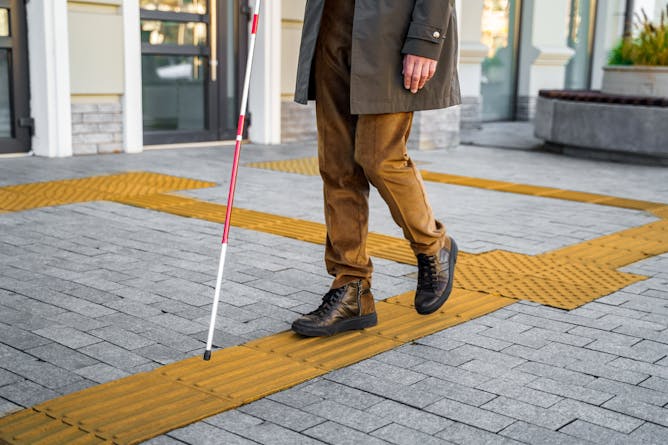|
The United States is reportedly planning for a sustained campaign to target the Houthis in Yemen after more than a week of airstrikes have failed to stop the group’s attacks on shipping vessels off the Arabian Peninsula.
Today in The Conversation Canada, James Horncastle of Simon Fraser University explains who the Houthis are and why they’re vowing revenge on Israel for its sustained attack on Gaza. But he points out that by retaliating against the Houthis, the U.S. and the United Kingdom risk the very event they’re trying to avoid — a wide-scale, prolonged and potentially devastating war in the Middle East.
He writes that instead of escalating the conflict with airstrikes, the U.S. should focus on its initial goal to build a maritime coalition force that could help bring the Houthis under control — and dial down the tension in the Middle East.
Also today:
|

This photograph provided by the Indian Navy shows U.S.-owned ship Genco Picardy that came under attack on Jan. 18, 2023, from a bomb-carrying drone launched by Yemen’s Houthi rebels in the Gulf of Aden.
(Indian Navy via AP)
James Horncastle, Simon Fraser University
Since the outset of Israel’s invasion of Gaza, the West has aimed to prevent the conflict from escalating regionally. But strikes on the Houthis in Yemen by the U.S. and the U.K. may ensure it will.
|

Black people in Canada continue experiencing oppression and dehumanization because of how their skin colour is viewed and represented.
(Shutterstock)
Warren Clarke, University of Manitoba
Young Black men are being denied employment for multifaceted reasons, and when they do find work, are often trapped in low-paying jobs.
|

Textured surfaces on city pavements can help make public space more accessible to disabled persons.
(Shutterstock)
Ron Buliung, University of Toronto
Decades of activism have resulted in legislation and infrastructure to make cities more accessible, but the lived experiences of disabled residents shows there’s still a long way to go.
|

Despite evidence that classroom simulations are beneficial in the training of news professionals, they haven’t been widely used in journalism education.
(Sara Mizannojehdehi)
Matthew Pearson, Carleton University
Developing trauma-aware interview skills is part of teaching students how to ethically and sensitively report on traumatic events, and learn how to take care of their own mental health and well-being.
|

Lors de l’achat d’aliments préemballés, les consommateurs allergiques se fient aux déclarations dans la liste d’ingrédients pour identifier les aliments sécuritaires.
(Shutterstock)
Silvia Dominguez, Université Laval; Jérémie Théolier, Université Laval; Samuel Godefroy, Université Laval
Les aliments « végan » sont perçus comme n’ayant pas d’ingrédients d’origine animale par la plupart de consommateurs, mais peuvent en fait contenir des protéines de lait.
|
Arts
|
-
Somdip Dey, University of Essex
Thanks to AI, the future of music is not just about listening, it’s about experiencing.
|
|
Business + Economy
|
-
Sylvanus Kwaku Afesorgbor, University of Guelph
Ghana’s industries need fewer production constraints and more incentives to compete domestically.
|
|
Health
|
-
Nicole Adams, Purdue University
The study discovered that nonmedical personnel can provide the naloxone to an overdose victim in about one minute.
|
|